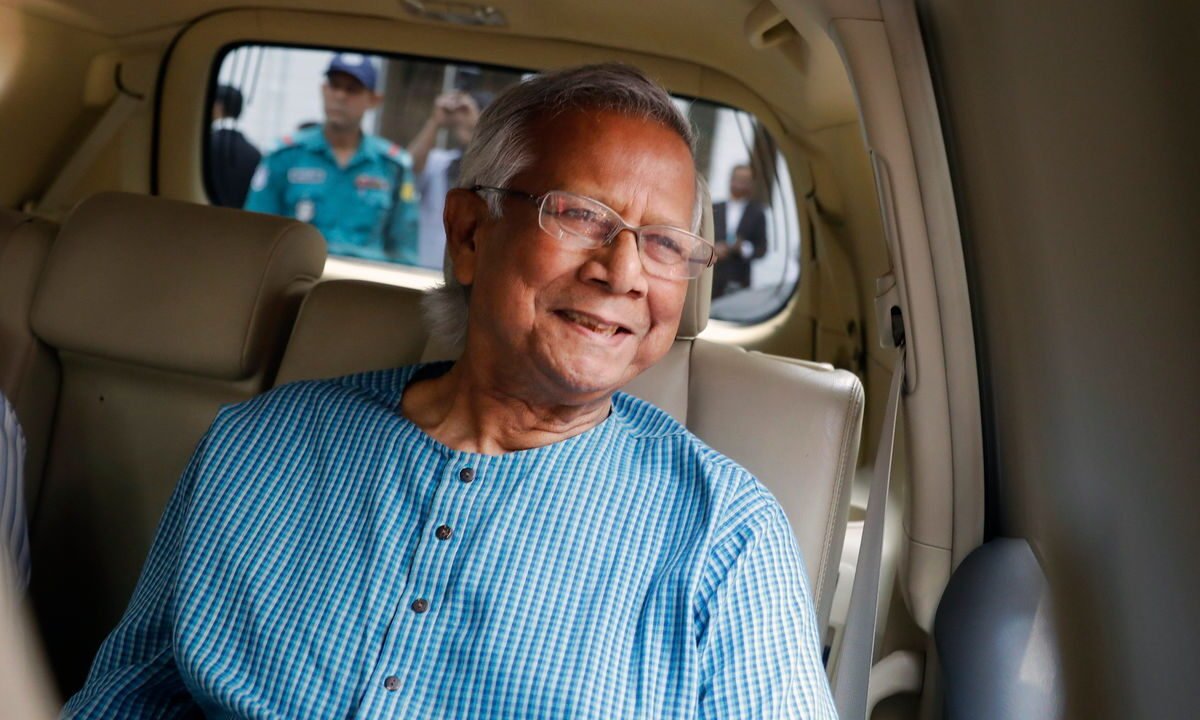MUHAMMAD YUNUS was already Bangladesh’s most famous citizen; this week he assumed its most important political office. On August 6th the 84-year-old economist and Nobel peace laureate was appointed to head an army-backed interim government, after protests forced the resignation of Sheikh Hasina, the prime minister. Protest leaders, fed up with Sheikh Hasina’s authoritarianism, agreed that Mr Yunus was the best person to lead the country following weeks of turmoil. As one leader of the student movement put it: “In Dr Yunus, we trust.”
Their faith is easy to understand. For most of his career, Mr Yunus has sought to help his fellow Bangladeshis. His contributions began with the country’s birth in 1971. As Pakistani troops suppressed an independence movement, Mr Yunus, then an assistant professor of economics in America, helped lead the freedom fight from abroad, lobbying the White House to formally recognise Bangladesh, a country infamously dismissed by Henry Kissinger, President Nixon’s national security adviser, as a “basket case”. When independence was won, Mr Yunus returned home to join the new government as a civil servant in the government’s planning commission.
Bureaucracy, however, proved frustrating. So did a subsequent role in academia as head of a local university’s economics department. As famine ravaged Bangladesh in 1974, Mr Yunus said he felt terrible teaching “elegant theories of economics” amid widespread starvation. He wanted to be “of some use to some people”. He would feel useful soon enough. In 1976 Mr Yunus met Sufiya Begum. Like many around her, the 21-year-old maker of bamboo furniture depended on credit from usurious lenders. Commercial banks demanded collateral, which she did not have; so to free her from his debts Mr Yunus forked out the money himself.
That experience proved to be a “eureka moment”, he said later. It prompted him to launch a financial programme, disbursing small loans to the very poor. The novel project eventually evolved into Grameen Bank. Today it is a financial behemoth with 23,000 employees and 11m borrowers across 94% of Bangladeshi villages, and has cumulatively disbursed $39bn in loans—mostly to poor women. Microfinance also became an international phenomenon. Inspired by Grameen, more than 100 developing countries around the world have launched microcredit services.
For Mr Yunus, all this brought international acclaim. In 2006, along with Grameen Bank, he won the Nobel peace prize for “efforts to create economic and social development from below”. But Mr Yunus was never satisfied with being just the “banker to the poorest of the poor”, as the Nobel committee anointed him. In his youth, he and his father ran a lucrative packaging company. That perhaps shaped his view that “all human beings are entrepreneurs” and that profit could be a powerful way to solve social issues. And so the Grameen movement expanded into agriculture, fisheries, phones and even software.
Still, Mr Yunus is not without his critics. The most vocal of these has been Sheikh Hasina. She once described him as a “bloodsucker of the poor”, arguing the high interest rates charged by microfinance lenders trapped borrowers in a cycle of debt rather than lifting them out of poverty. Economists too have cast doubts on the microfinance model. Research on its effectiveness is mixed, with some studies suggesting that microcredit does not significantly reduce poverty as it is often unavailable to the very poorest.
But Sheikh Hasina’s criticisms seemed motivated less by economics than by politics. Mr Yunus had incurred her wrath when in 2007, during a period of military rule, he considered entering politics. Then, as now, the army had stepped in after a period of corrupt and authoritarian rule by one of Bangladesh’s two big civilian parties. Hoping to find an alternative to them, the army had lighted on Mr Yunus.
After becoming prime minister in 2009, Sheikh Hasina sought to suppress those who might conceivably pose a political threat. That group included Mr Yunus, and in 2011 her government ousted him from Grameen’s board. But the attacks extended beyond his work with Grameen. He was accused of promoting homosexuality and lobbying America to persuade the World Bank to abandon an important infrastructure project. Earlier this year, he was sentenced to six months in jail for violating labour laws. Mr Yunus has always denied any wrongdoing, claiming that the 190 court cases pending against him have been politically motivated.
Despite his previous flirtation with politics, Mr Yunus has insisted that it is not his “cup of tea”. His focus recently has been to help create a world of three zeroes: zero net carbon emissions, zero poverty and zero unemployment. But as Bangladesh’s interim leader, he is now a politician, with more mundane targets, such as restoring order and ensuring free and fair elections. Writing in The Economist shortly before assuming his new role, Mr Yunus referred to 1971, cheering Bangladesh’s “second liberation”. But he urged Bangladeshis to move on from their country’s “backward-looking” politics. He has already helped them look to the future with a bit more hope. ■





